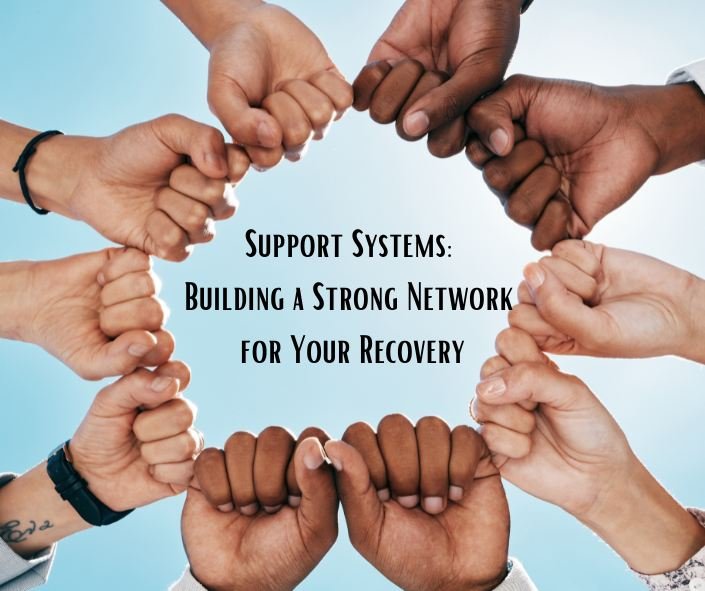Recovering from alcohol and drug addiction is a challenging journey that requires not only personal determination but also a strong support network. A supportive community can provide emotional, psychological, and practical assistance, making the path to sobriety more manageable. Whether you’re undergoing treatment at a rehab centre in Bangalore or participating in an outpatient program, here’s how to build a robust support network during your recovery.
Identify Key Support Figures
The first step in building a support network is identifying key figures who can offer reliable and empathetic support. These individuals might include family members, close friends, mentors, or even colleagues who understand your struggle and are willing to assist you. It’s important to choose people who are non-judgmental, patient, and genuinely concerned about your well-being.
Involving family members can be particularly beneficial. Their unconditional love and support can provide a solid foundation for your recovery. However, it’s essential to have open and honest conversations with them about your needs and boundaries to ensure they can offer the kind of support that is most helpful to you.
Join Support Groups
Support groups are invaluable resources for anyone in recovery. These groups offer a safe space to share experiences, challenges, and successes with others who understand what you’re going through. Groups like Alcoholics Anonymous (AA) or Narcotics Anonymous (NA) have been instrumental in helping countless individuals maintain their sobriety.
Attending meetings regularly can help you build connections with others in similar situations. The camaraderie and shared experiences within these groups can provide a sense of belonging and reduce feelings of isolation. If you’re at a rehab centre in Bangalore, inquire about local support groups or meetings that you can attend during and after your treatment.
Utilize Professional Support
In addition to friends, family, and peer support groups, professional support is crucial in the recovery process. Therapists, counselors, and medical professionals can provide expert guidance and treatment plans tailored to your specific needs.
Regular therapy sessions can help address underlying issues that may contribute to substance abuse, such as trauma, anxiety, or depression. Cognitive Behavioral Therapy (CBT), for example, is an effective method for changing the thought patterns and behaviors associated with addiction.
If you’re receiving treatment at a rehab centre in Bangalore, take full advantage of the professional resources available to you. These centers often have a team of experts, including psychiatrists, psychologists, and social workers, who can offer comprehensive support throughout your recovery journey.
Engage in Community Activities
Engaging in community activities is another effective way to build a support network. Volunteering, joining clubs, or participating in local events can help you meet new people and develop positive relationships. These activities can also provide a sense of purpose and fulfillment, which is vital in maintaining sobriety.
Volunteering, in particular, can be therapeutic. Helping others can improve your mood, reduce stress, and provide a sense of achievement. It also allows you to connect with others who share similar values and interests, further expanding your support network.
Maintain Open Communication
Open communication is essential in any support network. Keeping your support figures informed about your progress, challenges, and needs can help them provide the right kind of assistance. Regularly check in with your support network and be honest about how you’re feeling and what you’re going through.
It’s also important to communicate your boundaries. Let your support figures know what you’re comfortable with and what you’re not. This can prevent misunderstandings and ensure that your support network respects your space and needs.
Stay Connected with Your Rehab Centre
After completing treatment, staying connected with your rehab centre in Bangalore can be incredibly beneficial. Many centers offer aftercare programs or alumni groups that provide ongoing support and resources. These programs can help you stay accountable, continue learning, and remain connected to a community that understands your journey.
Regular follow-ups with your rehab center can also provide reassurance and encouragement as you navigate life post-treatment. These connections can serve as a safety net, offering support and guidance whenever you need it.
Conclusion
Building a support network during recovery is a critical step towards achieving and maintaining sobriety. By identifying key support figures, joining support groups, utilizing professional support, engaging in community activities, maintaining open communication, and staying connected with your rehab centre in Bangalore, you can create a strong and supportive network. This network will provide the encouragement, understanding, and resources you need to successfully navigate your recovery journey. Remember, you don’t have to do it alone; support is available, and reaching out is a sign of strength, not weakness.

